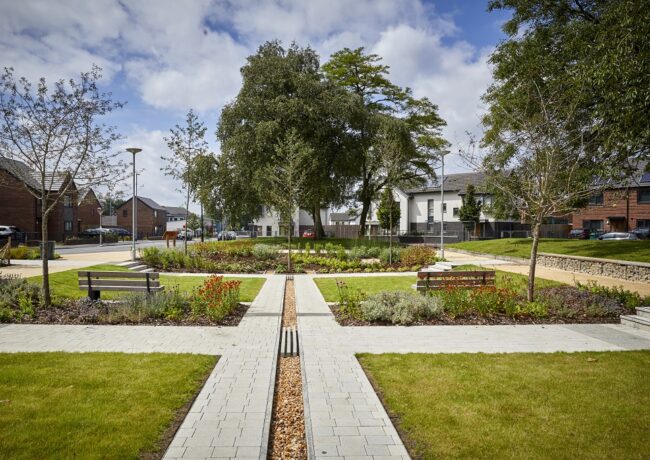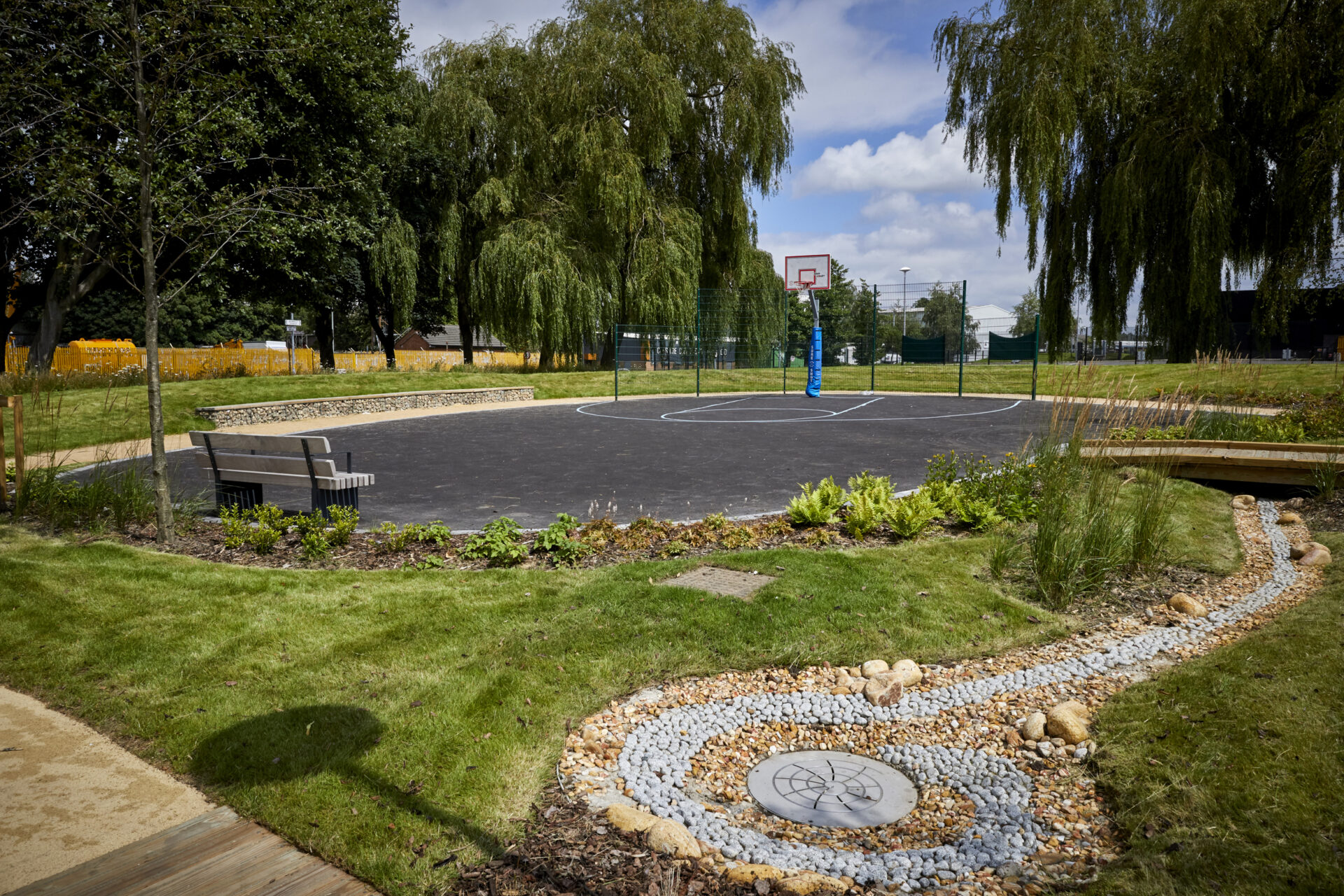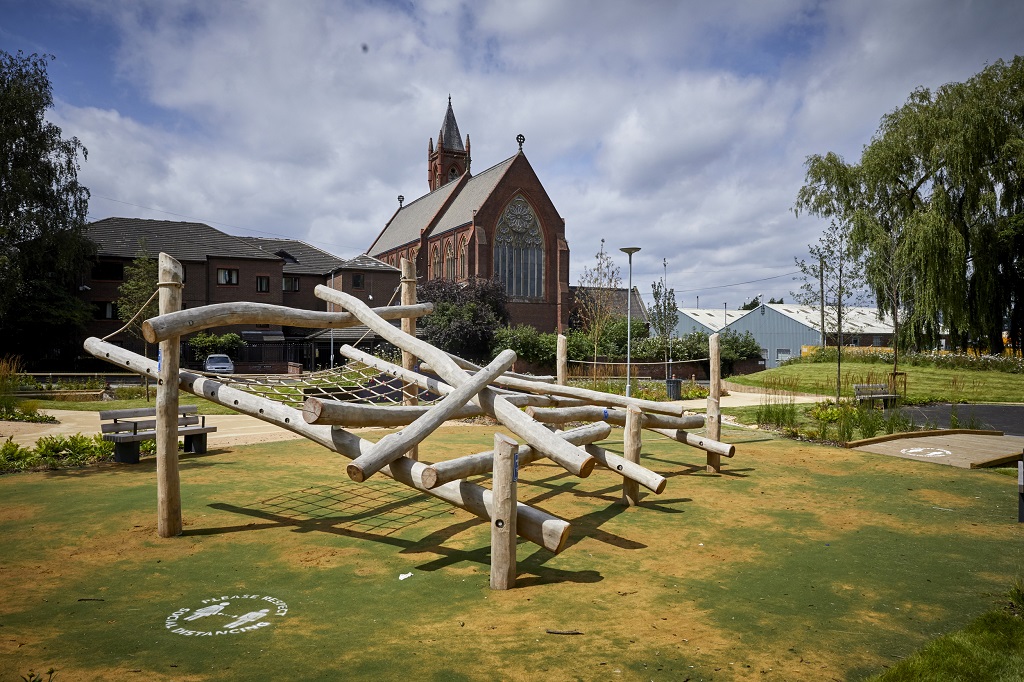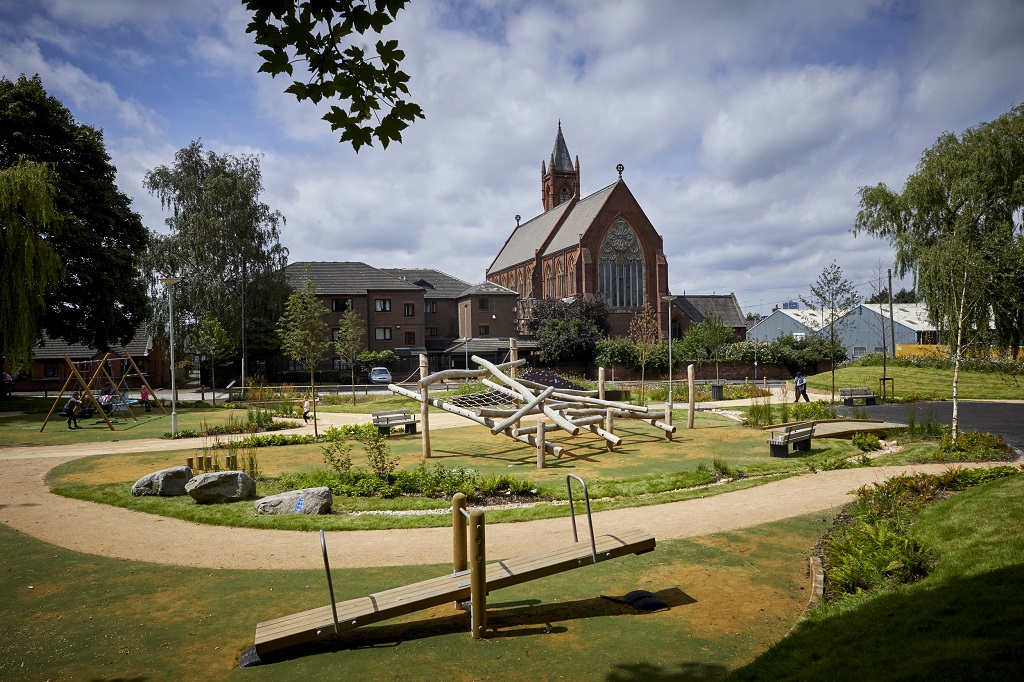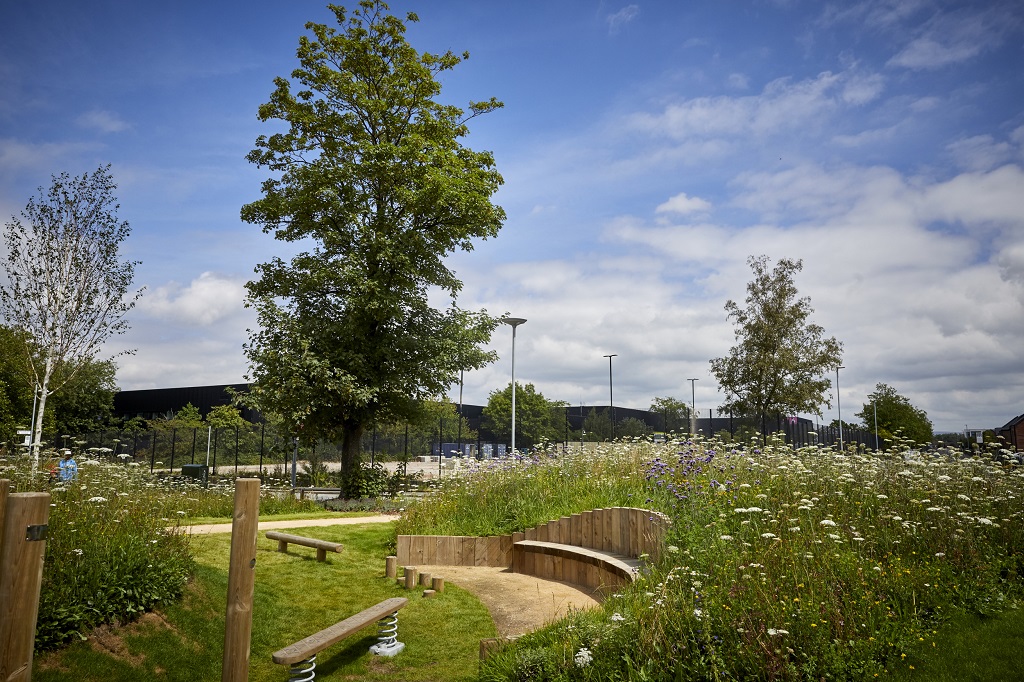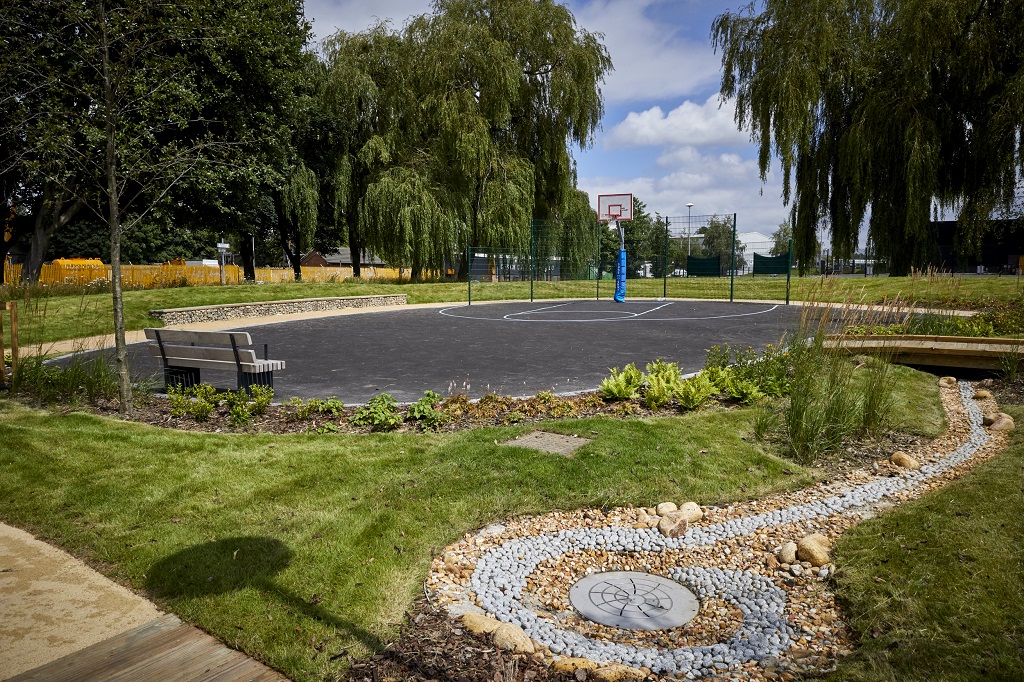GALLERY | Carbon ‘sponge park’ opens in West Gorton
Manchester City Council, with the University of Manchester and affordable housing provider the Guinness Partnership, have created a community park aimed at helping to mitigate the effects of climate change.
The park in East Manchester is the final element of the West Gorton regeneration programme, which has seen the transformation of a previously rundown neighbourhood, with new housing and community facilities over the last 11 years.
Dubbed the “sponge park”, for the way its greenery and other features are intended to seep up carbon emissions, West Gorton Community Park is made up of three separate but interconnected spaces.
Click any image below to enlarge gallery
The woodland area has a planted ‘rain garden’, wetland meadow, picnic area and informal play area with an outdoor climbing wall and timber play features.
Meanwhile, a meadow area features orchard trees, picnic tables, edible hedgerows, exploration play and a stepping-stone trail, while the garden area includes an event space, community growing space and seating.
The park, located in the heart of West Gorton, has been designed in consultation with the community to benefit local people, wildlife and the environment. The estate itself became famous for featuring in the TV series Shameless.
Cllr Suzanne Richards. Manchester City Council’s executive member for housing and regeneration at Manchester City Council, said: “This beautiful park for West Gorton marks the completion of a major programme of regeneration that has lasted for more than a decade, bringing high-quality housing and community facilities to revitalise this neighbourhood.”
And Cllr Angeliki Stogia, the council’s executive member for environment, planning and transport, added: “The ‘sponge park’ will serve as a wonderful model for how green spaces can help us to tackle the effects of climate change.
“Its intelligent design will reduce the risk of local flooding, as well as helping to create a more attractive, healthier environment for West Gorton residents.”
Landscape architecture firm BDP designed the park and Idverde was the construction contractor.
The park was part-funded through the European Commission’s Horizon 2020 Research and Innovation Programme, as part of GrowGreen, a Europe-wide green infrastructure and nature initiative.
Pictures credited to Mark Waugh
- The 'sponge park' is intended to mitigate the effects of climate change
- The park features play areas, communal gardens and greenery.


